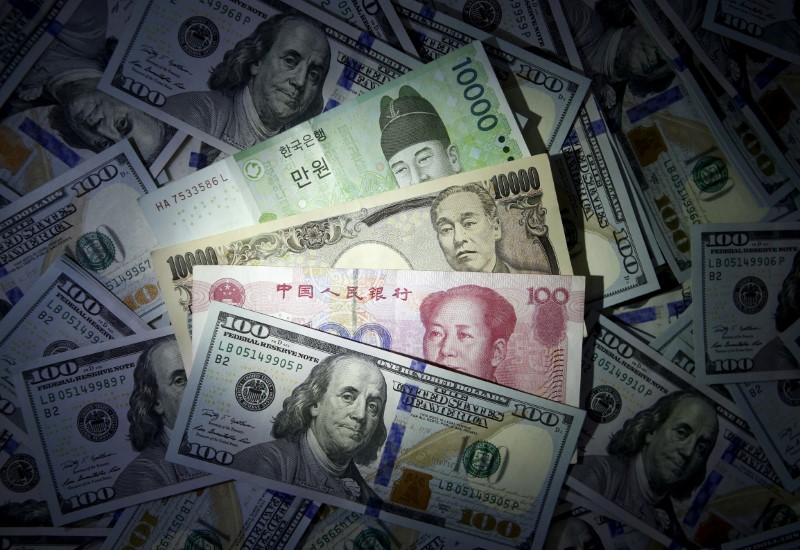TOKYO (Reuters) - The dollar eased on Thursday as traders sought some stability after 24 hours of high drama in global markets that saw a massive selloff in risk assets and an equally dramatic turnaround on Republican Donald Trump's shock U.S. presidential win.
With market uncertainty running deep over what a Trump presidency might mean for economic policy, traders quickly latched on to talk that the new administration will usher in higher economic growth and inflation, sending U.S. bond yields surging overnight.
The dollar was last down 0.3 percent at 105.40
It had sunken as low as 101.19 yen on Wednesday, as Trump's victory became more apparent and risk assets plunged, stoking demand for the perceived safe-haven Japanese currency.
The yield on benchmark 10-year Treasury debt (US10YT=RR) fell back in Asian trading to 1.995 percent, compared to its U.S. close of 2.064 percent on Wednesday.
Prices fell on 10-year Treasury notes and 30-year bonds on Wednesday, pushing yields to their highest levels in 10 months in a dramatic about-face from the massive risk asset selloff on Trump's stunning upset. [U/S]
Speculation in markets that Trump would enact protectionist trade policies and put upward pressure on U.S. wages and boostinflation helped lift U.S. bond yields.
"The U.S. yield curve showed expectations for something similar to Reaganomics in the 1980's, when there was huge fiscal stimulus and a little bit of monetary tightening," said Masashi Murata, senior currency strategist at Brown Brothers Harriman in Tokyo.
"But today's Tokyo session's action is very natural to me. Market participants recognize that some Trump risk remains, and the market should be ready for risk-off sentiment to return, which is why U.S. Treasury yields dropped back below 2 percent," he said.
Other market participants cited selling by Japanese exporters, who were absent from the previous day's Asian trading session when the yen surged.
Trump stated during the campaign that he would spend more on developing U.S. infrastructure, which could increase the U.S. budget deficit and Treasury supply. Trump also will take office with Republican majorities in both chambers of the U.S. Congress that could help him implement his legislative agenda.
"U.S. yields were part of the reason for the dollar's rise, but there was also a lot of 'buy the rumor, sell the fact' and unwinding of the 'Trump trade,' after it played out, and a return to fundamentals," said Mitsuo Imaizumi, chief currency strategist at Daiwa Securities in Tokyo.
Investors still expect the U.S. Federal Reserve to raise interest rates at its December policy meeting, after being on hold since hiking rates in December 2015.
About 85 percent of 62 respondents in a survey taken on Wednesday after the shock vote said the Fed would go ahead with a rate rise, its first in a year. Forecasts came from several of the Wall Street primary dealers as well as European analysts.
Minneapolis Federal Reserve Bank President Neel Kashkari on Wednesday said he sees continued sluggish growth ahead for the U.S. economy, unless lawmakers and the president "get going" on policies to boost productivity and population.
The euro spiked as high as $1.1299

The dollar index, which tracks the greenback against a basket of six major rivals, was slightly higher on the day at 98.523 (DXY) after rising to an overnight high of 98.704, its highest since Oct. 28.